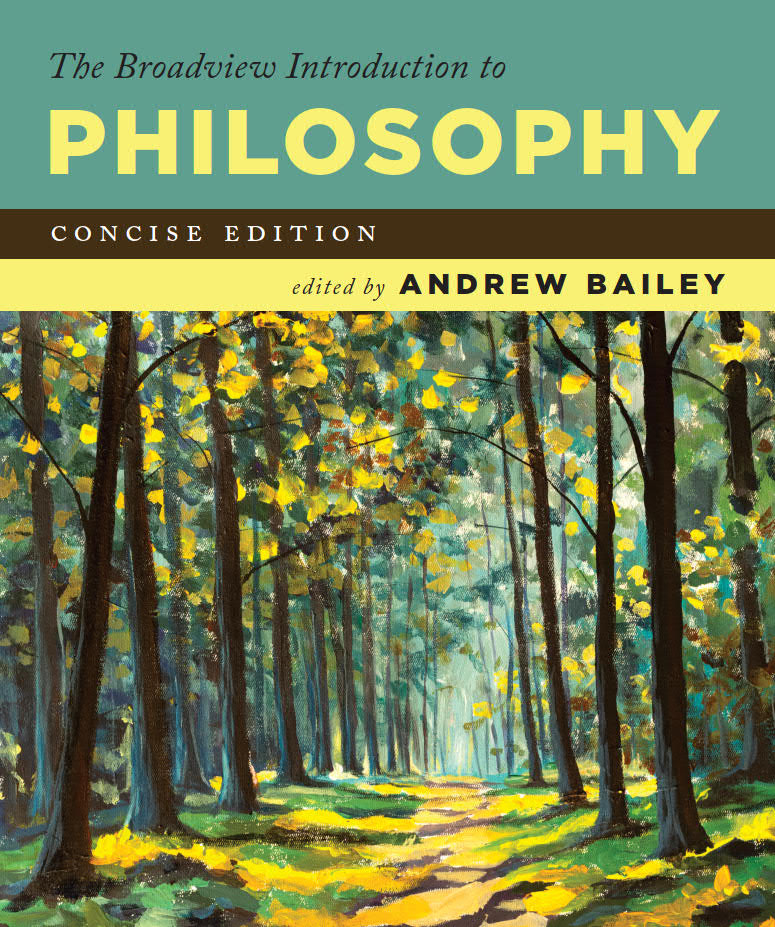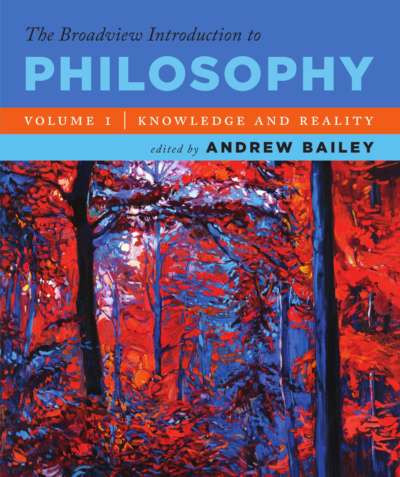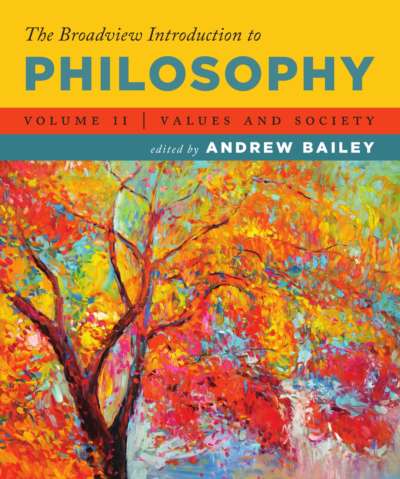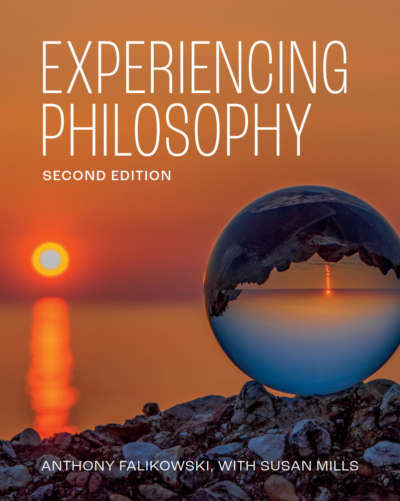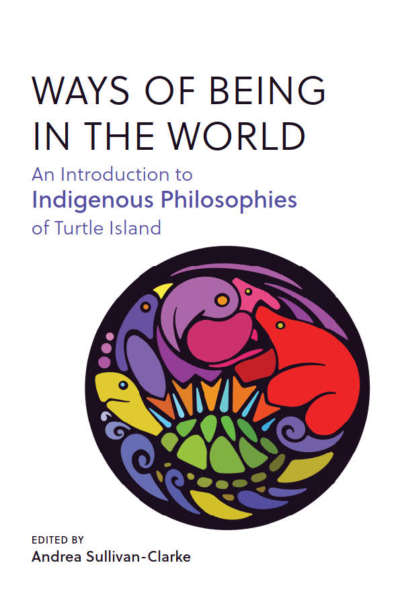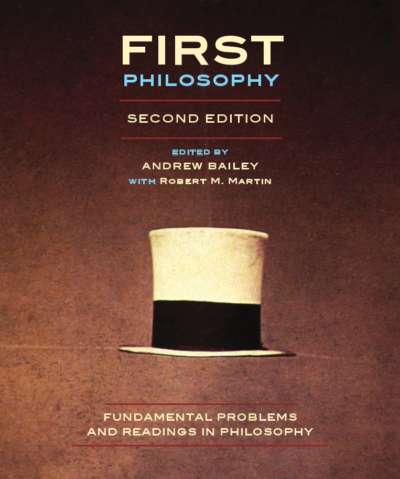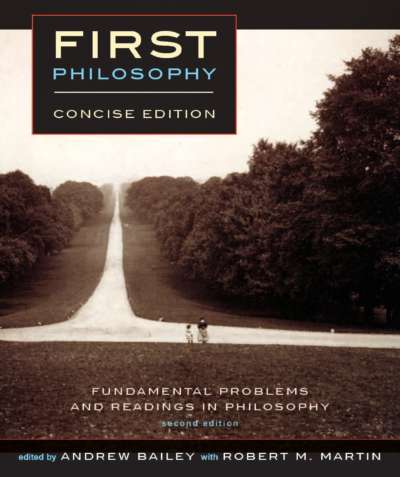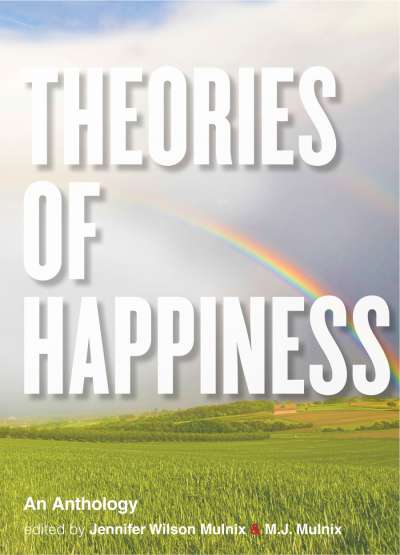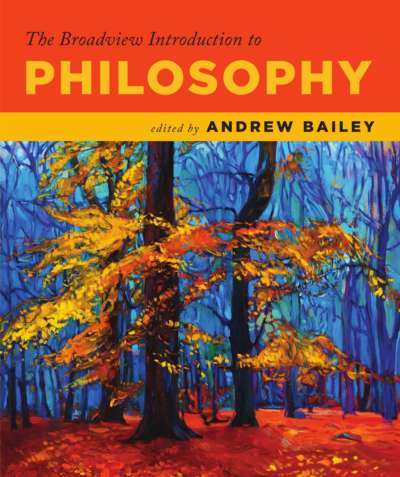The concise edition of The Broadview Introduction to Philosophy offers 44 historical and contemporary readings on core topics in Western philosophy, including philosophy of religion, theories of knowledge, metaphysics, ethics, social-political philosophy, and issues of life, death, and happiness. Unlike other introductory anthologies, the Broadview offers considerable apparatus to assist the student reader in understanding the texts without simply summarizing them. Each selection includes an introduction discussing the context and structure of the primary reading, as well as thorough annotations designed to clarify unfamiliar terms, references, and argument forms. Canonical texts from the history of philosophy are presented alongside contemporary scholarship; women authors are included throughout.
A larger “complete” version of this anthology is also available. For courses on religion, epistemology, and metaphysics, or courses on ethics and social-political philosophy, a split-volume version is offered:
The Broadview Introduction to Philosophy, Volume 1: Knowledge and Reality
The Broadview Introduction to Philosophy, Volume 2: Values and Society
Comments
Comments on The Broadview Introduction to Philosophy
“The Broadview Introduction to Philosophy is an outstanding text for introductory philosophy courses. It contains a wonderful collection of readings. Moreover, the editor provides highly informative introductions to the readings.” — Marc Ereshefsky, University of Calgary
“The Broadview Introduction to Philosophy is a carefully curated collection of classic and contemporary philosophical texts. In this volume, Bailey attains a more equitable representation of philosophers than is typical of most introductory philosophy anthologies, and his inclusion of additional materials—useful introductions, descriptions of overall projects, and background information—makes this anthology ideal for students in today’s introductory courses.” — Andrea Sullivan-Clarke, University of Windsor
“The Broadview Introduction to Philosophy offers helpful contextualization and clarification of its readings, along with overviews of how particular arguments fit into larger discussions. But it also offers something more. Blending the ‘canon’ with the new—in terms of both the issues raised and the voices raising them—this anthology offers a compelling answer to the perennial question in introductory courses: Why should I care about philosophy? Because it matters.” — Brynn Welch, University of Alabama at Birmingham
“The Broadview Introduction to Philosophy is a very useful collection, as it initiates questions in metaphysics, epistemology, and ethics out of considerations in the philosophy of religion. This is a compelling way to help students start philosophizing.” — Scott F. Aikin, Vanderbilt University

